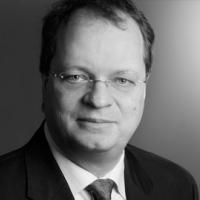The Arctic Today - Finding Common Transatlantic Ground
- Presentation
- Date
-
- Location
- Ottawa, Canada
- Chairing
As the Cold War ends and the ice is melting in the Arctic, security and arms control, climate change and energy, present a new situation for the relations among nations and the joint management of the region. On 29 September 2009, the Friedrich Ebert Foundation and the Rideau Institute convened an expert meeting in Ottawa to take stock of "The Arctic Today and Finding Common Transatlantic Ground". R. Andreas Kraemer of Ecologic Institute acted as discussant and moderated a session on energy and the environment.
The key findings and a summary report [pdf, 125 KB, English] of the Arctic Future Forum in Ottawa, ON, on 29 September 2009 is available download.
Key Findings:
Security & Arms Control
- There is a human component of security: security of food, culture and language.
- There is a difference between militarization and security. They do not mean the same thing for all peoples and regions, and can even be in opposition.
- The role of the Arctic Council should be expanded and include debate on security and military matters and give Northern residents a voice.
- Cold War era nuclear weapons policies and practices, including the presence of nuclear weapons in the Arctic, remains a challenge. While a Nuclear Weapons Free Zone may not be achievable in the short term, an agreement between Arctic nations not to move forward with new installations could be possible.
- NATO’s Arctic Policy is important because it has the potential to increase tension between Russia and the Arctic NATO members. Non-Arctic countries could act as mediators.
- Access to newly navigable waterways like the Northwest Passage is seen as a national security threat. The challenge is that denial of access could have international implications.
Energy & the Environment
- There is a need for stronger environmental standards, regulations and governance, on a local, national and international level.
- Co-management strategies should be promoted, involving local indigenous people and traditional knowledge.
- Oil spills will become more of a threat with increased shipping. Clean-up methods need to be detailed.
- A moratorium on oil and gas exploration and extraction does not seem feasible at present. It would result in severe economic and development disadvantages for Northerners.
- Climate change is not an Arctic issue alone. However, the Arctic is especially affected by it, and Arctic countries should strongly promote the reduction of carbon emissions and take a constructive role in the climate change negotiations
Governance & International Relations
- The costs of governance in the Arctic are high, yet governance resources and capacity are not always adequate. The structures in place deserve praise since they champion consensus as well as inclusion of indigenous players and experience.
- Interaction between state and non-state actors normally results in better governance. At the same time, cross-border relations are crucial for stable governance.
- Emerging new actors and factors need to be taken into account, such as Inuit self-determination or an independent Greenland.
- The Arctic Council faces questions of legitimacy. Not all nations give it the same value, and not all observers are equally committed. The Council’s mandate could be broadened to include non-Arctic states.
- An attitude of self-sufficiency could hinder Arctic states from taking valuable advice and potentially moving in new directions.
- As a world “intersection”, the Arctic is a global issue by nature. It could even be redefined as a “global commons” and eventually an international model of good governance.
Other Issues:
- Stewardship is a concept that ties together local governance, security and other issues.
- Non-Arctic players can inform the debates and enrich the discussion. Learn from Australia’s experience with polar stewardship in Antarctica and improve dialogue between Arctic and non-Arctic regions on the subject.
- Indigenous players outside of the nation state can impact foreign policy and must be considered.
- Transportation is a crosscutting issue and could be a major policy topic for debate – brings together resources, environment, security and governance.
- The Arctic issue presents high levels of complexity and interconnectedness – focus on specific aspects is key to upcoming discussions. An informal poll found “governance” was a key topic.





